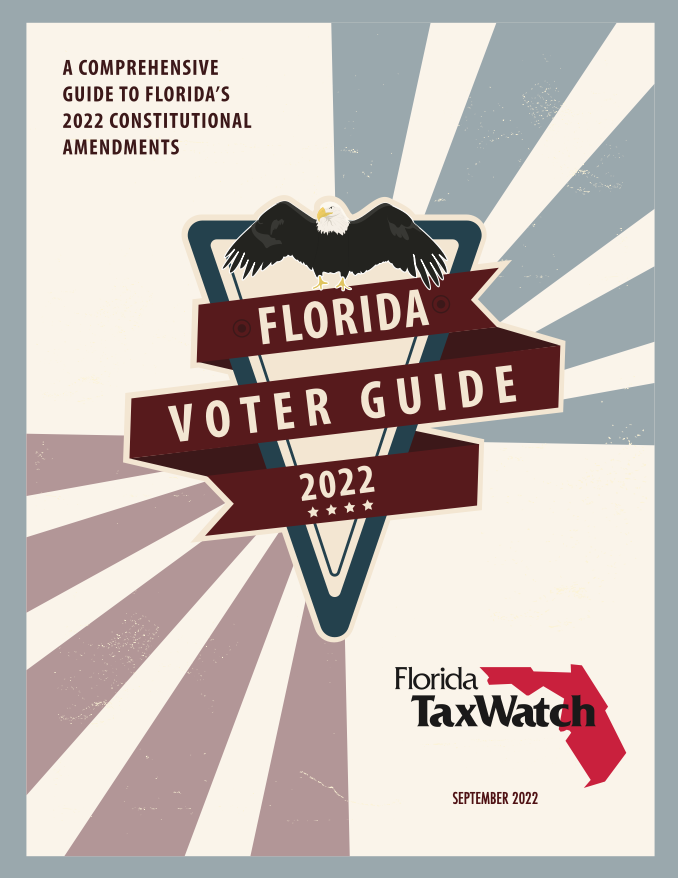A Comprehensive Guide to Florida's 2022 Constitutional Amendments

On November 8, 2022, Floridians will vote on three legislatively referred proposed amendments to the Florida Constitution. At least 60 percent of the voters must vote in the affirmative for a proposed amendment to pass. This Florida TaxWatch Voter Guide is designed to provide Florida voters with information about each of the proposed amendments to help them cast well-informed votes.
Proposed constitutional amendment Number 1 would authorize the legislature to prohibit local governments from taking flood resistance improvements into account when calculating a property's assessed value for property tax purposes. Proposed constitutional amendment Number 2 would abolish the Florida Constitutional Revision Commission. Proposed constitutional amendment Number 3 would authorize the legislature to grant an additional homestead exemption of up to $50,000 for specified critical front-line public employees. All three proposed amendments have been placed on the November ballot by joint resolutions of the Florida Legislature.
For each proposed amendment, this Voter Guide provides the following information:
- The title of the proposed amendment as it will appear on the November 8, 2022 ballot;
- How the proposed amendment came to be placed on the November 8, 2022 ballot;
- The specific section or sections of the Constitution that are being amended;
- A summary of the proposed amendment, including the practical effects of a “yes” vote or a “no” vote;
- A summary of the arguments for and against the proposed amendment;
- A detailed and thorough analysis of the proposed amendment;
- The fiscal impact of the proposed amendment;
- Florida TaxWatch’s conclusion, based upon the analysis and fiscal impacts of the proposed amendment; and
- A recommendation by Florida TaxWatch.
Florida TaxWatch believes the contents of the Florida Constitution should be limited to matters that are essential or fundamental. A proposed amendment may very well be a good idea, but voters must ask themselves “does it belong in the constitution, or should it be adopted as a Florida statute?” The constitution loses much of its significance as the foundation of government when the process of constitutional amendment is used as a substitute for legislation.
Once incorporated, it is extremely difficult to remove what is essentially a statutory provision from the constitution. The only option is to amend the constitution, which requires a 60 percent supermajority approval by Florida voters. The briefer and more concise the constitution, the more likely it is to be read and, more importantly, understood by the taxpayer.
For your convenience, Florida TaxWatch has included a page to take notes on the various amendments to take with you to the ballot boxes (see page 13). Download the file below.